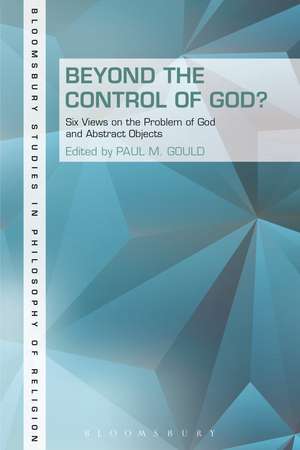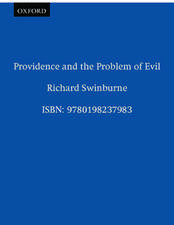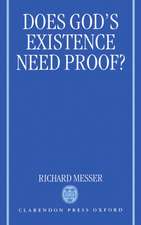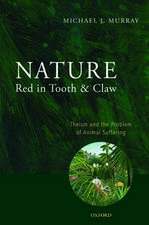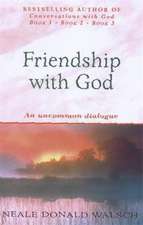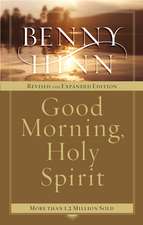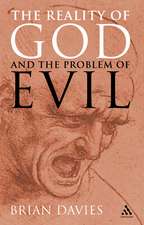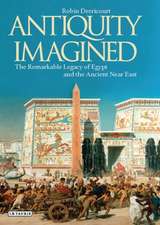Beyond the Control of God?: Six Views on the Problem of God and Abstract Objects: Bloomsbury Studies in Philosophy of Religion
Editat de Dr. Paul Goulden Limba Engleză Paperback – 21 mai 2014
| Toate formatele și edițiile | Preț | Express |
|---|---|---|
| Paperback (1) | 191.38 lei 6-8 săpt. | |
| Bloomsbury Publishing – 21 mai 2014 | 191.38 lei 6-8 săpt. | |
| Hardback (1) | 831.43 lei 6-8 săpt. | |
| Bloomsbury Publishing – 21 mai 2014 | 831.43 lei 6-8 săpt. |
Din seria Bloomsbury Studies in Philosophy of Religion
- 30%
 Preț: 527.07 lei
Preț: 527.07 lei - 22%
 Preț: 224.66 lei
Preț: 224.66 lei - 13%
 Preț: 254.19 lei
Preț: 254.19 lei - 22%
 Preț: 232.90 lei
Preț: 232.90 lei - 12%
 Preț: 234.38 lei
Preț: 234.38 lei -
 Preț: 258.42 lei
Preț: 258.42 lei - 13%
 Preț: 255.84 lei
Preț: 255.84 lei - 13%
 Preț: 224.58 lei
Preț: 224.58 lei - 31%
 Preț: 830.20 lei
Preț: 830.20 lei - 22%
 Preț: 257.50 lei
Preț: 257.50 lei -
 Preț: 257.03 lei
Preț: 257.03 lei -
 Preț: 259.42 lei
Preț: 259.42 lei -
 Preț: 254.93 lei
Preț: 254.93 lei - 21%
 Preț: 216.52 lei
Preț: 216.52 lei - 23%
 Preț: 190.50 lei
Preț: 190.50 lei - 23%
 Preț: 192.30 lei
Preț: 192.30 lei - 23%
 Preț: 191.22 lei
Preț: 191.22 lei
Preț: 191.38 lei
Preț vechi: 235.74 lei
-19% Nou
Puncte Express: 287
Preț estimativ în valută:
36.62€ • 38.34$ • 30.30£
36.62€ • 38.34$ • 30.30£
Carte tipărită la comandă
Livrare economică 05-19 aprilie
Preluare comenzi: 021 569.72.76
Specificații
ISBN-13: 9781623563653
ISBN-10: 1623563658
Pagini: 224
Dimensiuni: 152 x 229 x 18 mm
Greutate: 0.34 kg
Editura: Bloomsbury Publishing
Colecția Bloomsbury Academic
Seria Bloomsbury Studies in Philosophy of Religion
Locul publicării:New York, United States
ISBN-10: 1623563658
Pagini: 224
Dimensiuni: 152 x 229 x 18 mm
Greutate: 0.34 kg
Editura: Bloomsbury Publishing
Colecția Bloomsbury Academic
Seria Bloomsbury Studies in Philosophy of Religion
Locul publicării:New York, United States
Caracteristici
The arguments laid out have implications for issues across metaphysics, epistemology, philosophy of language, theology
Notă biografică
Paul M. Gould is Assistant Professor of Philosophy and Christian Apologetics at Southwestern Baptist Theological Seminary, USA.
Cuprins
AcknowledgmentsIntroduction to the Problem of God and Abstract Objects Paul M. Gould, Southwest Baptist Theological Seminary, USA1. God and Propositions Keith Yandell, University of Wisconsin, USA Response to Yandell Paul M. Gould, Southwest Baptist Theological Seminary, USA & Richard Brian Davis, Tyndale University, Canada Greg Welty, Southeastern Baptist Theological Seminary, USA William Lane Craig, Talbot School of Theology, USA Scott A. Shalkowski, University of Leeds, United Kingdom Graham Oppy, Monash University, Australia Response to Critics Keith Yandell, University of Wisconsin, USA2. Modified Theistic Activism Paul M. Gould, Southwest Baptist Theological Seminary, USA & Richard Brian Davis, Tyndale University, Canada Response to Gould/Davis Keith Yandell, University of Wisconsin, USA Greg Welty, Southeastern Baptist Theological Seminary, USA William Lane Craig, Talbot School of Theology, USA Scott A. Shalkowski, University of Leeds, United Kingdom Graham Oppy, Monash University, AustraliaResponse to Critics Paul M. Gould, Southwest Baptist Theological Seminary, USA & Richard Brian Davis, Tyndale University, Canada 3. Theistic Conceptual Realism Greg Welty, Southeastern Baptist Theological Seminary, USAResponse to Welty Keith Yandell, University of Wisconsin, USA Paul M. Gould, Southwest Baptist Theological Seminary, USA & Richard Brian Davis, Tyndale University, Canada William Lane Craig, Talbot School of Theology, USA Scott A. Shalkowski, University of Leeds, United Kingdom Graham Oppy, Monash University, AustraliaResponse to Critics Greg Welty, Southeastern Baptist Theological Seminary, USA4. Anti-Platonism William Lane Craig, Talbot School of Theology, USA Response to Craig Keith Yandell, University of Wisconsin, USA Paul M. Gould, Southwest Baptist Theological Seminary, USA & Richard Brian Davis, Tyndale University, Canada Greg Welty, Southeastern Baptist Theological Seminary, USA Scott A. Shalkowski, University of Leeds, United Kingdom Graham Oppy, Monash University, AustraliaResponse to Critics William Lane Craig, Talbot School of Theology, USA5. God with or without Abstract Objects Scott A. Shalkowski, University of Leeds, United Kingdom Response to Shalkowski Keith Yandell, University of Wisconsin, USA Paul M. Gould, Southwest Baptist Theological Seminary, USA & Richard Brian Davis, Tyndale University, Canada Greg Welty, Southeastern Baptist Theological Seminary, USA William Lane Craig, Talbot School of Theology, USA Graham Oppy, Monash University, AustraliaResponse to Critics Scott A. Shalkowski, University of Leeds, United Kingdom6. Abstract Objects? Who Cares! Graham Oppy, Monash University, Australia Response to Oppy Keith Yandell, University of Wisconsin, USA Paul M. Gould, Southwest Baptist Theological Seminary, USA & Richard Brian Davis, Tyndale University, Canada Greg Welty, Southeastern Baptist Theological Seminary, USA William Lane Craig, Talbot School of Theology, USA Scott A. Shalkowski, University of Leeds, United KingdomResponse to Critics Graham Oppy, Monash University, AustraliaBibliographyContributorsIndex
Recenzii
The Nicene Creed begins with the claim that God is "the maker of heaven and earth, of all that is, seen and unseen." Does this claim necessitate the claim that God is also the creator of abstract objects-propositions, sets, concepts, etc.-if such there be? In this volume, Paul Gould brings together a first rate collection of scholars articulating and defending a wide range of positions regarding the relationship between abstracta and God. The introduction and the responses to each chapter by the other contributors make this a very approachable and teachable volume.
Beyond the Control of God? is a much-needed and-for many like me-long-awaited book! Here we have a lively metaphysical engagement by leading philosophers on the fascinating, long-standing, and vitally important conversation about God, Platonism, nominalism, universals/abstract objects, particulars/concrete objects, and (non)instantiation. A superb resource and guide!
Paul Gould's edited book updates the state of play, and can serve as an excellent introduction to the debate for those of us who have not been following it closely. After Gould's introduction, there are six major contributions, each followed by critiques from each of the other contributors and a final rejoinder from the main author of the section. [.] Clearly, there are a lot of moving parts in this discussion; achieving simplicity along one dimension often brings with it unanticipated complexity in other respects. The essays in Beyond the Control of God? may not point us to a clear solution, but they enable to see a lot of what is at stake in the controversy. Highly recommended.
This book offers a riveting introduction to the nature of abstract objects, and God's relationship to such objects. The debate format makes the discussion engaging. The lead essays are short, and the critical responses are even shorter. This forces the authors to get straight to the point, which has its own perks for the reader. It makes the essays easier to consume. . Beyond the Control of God certainly whets the appetite. It is highly recommended for those interested in the philosophy of religion.
Beyond the Control of God? is a much-needed and-for many like me-long-awaited book! Here we have a lively metaphysical engagement by leading philosophers on the fascinating, long-standing, and vitally important conversation about God, Platonism, nominalism, universals/abstract objects, particulars/concrete objects, and (non)instantiation. A superb resource and guide!
Paul Gould's edited book updates the state of play, and can serve as an excellent introduction to the debate for those of us who have not been following it closely. After Gould's introduction, there are six major contributions, each followed by critiques from each of the other contributors and a final rejoinder from the main author of the section. [.] Clearly, there are a lot of moving parts in this discussion; achieving simplicity along one dimension often brings with it unanticipated complexity in other respects. The essays in Beyond the Control of God? may not point us to a clear solution, but they enable to see a lot of what is at stake in the controversy. Highly recommended.
This book offers a riveting introduction to the nature of abstract objects, and God's relationship to such objects. The debate format makes the discussion engaging. The lead essays are short, and the critical responses are even shorter. This forces the authors to get straight to the point, which has its own perks for the reader. It makes the essays easier to consume. . Beyond the Control of God certainly whets the appetite. It is highly recommended for those interested in the philosophy of religion.
